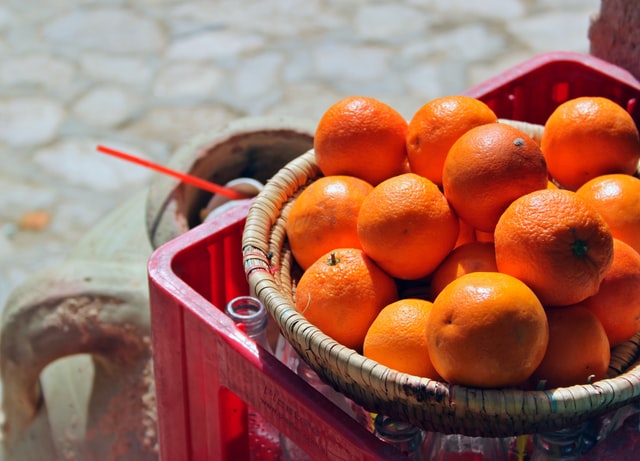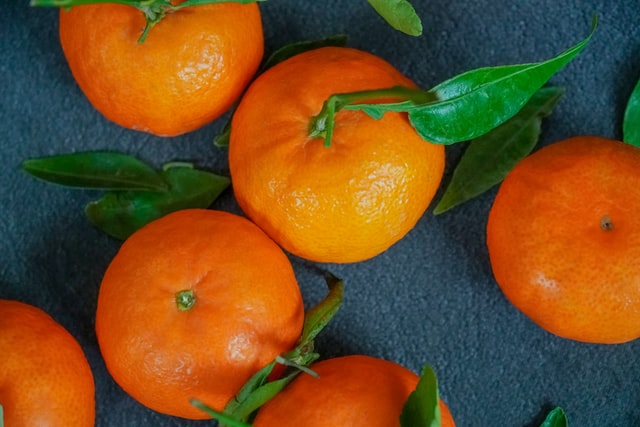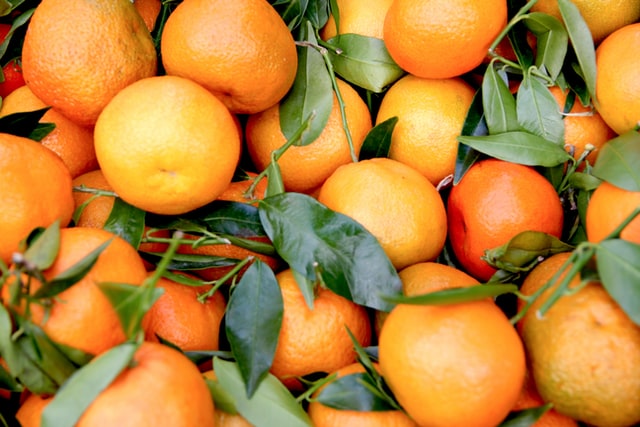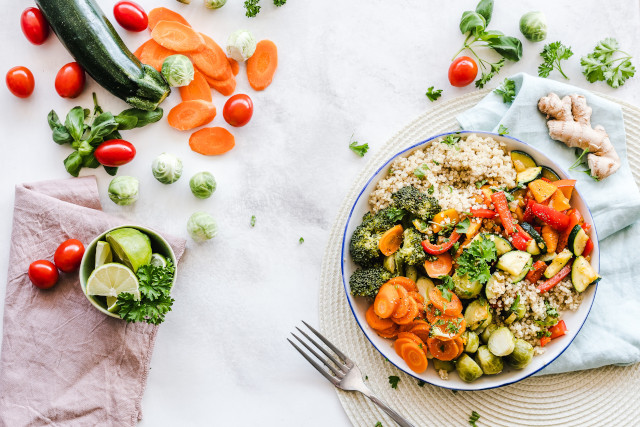
When you have diabetes, it's essential to keep a close eye on what you eat. It's also vital to understand how different foods affect your blood sugar so that you can plan sensible meals and snacks.
Contents
- What is the Mandarin Orange?
- These oranges have different names in various parts of the world.
- Mandarin oranges are an essential part of traditional Chinese culture.
- Nutrition in Mandarin Oranges
- Health benefits of Mandarin Oranges
- Great source of fibre
- Precautions to take when eating Mandarin oranges
- The amount of sugar in mandarin oranges varies widely from one brand to another.
- How to store Mandarin Oranges
- There are ways to safely manage your blood sugar levels if you enjoy eating mandarin oranges.
- Mandarin Oranges have relatively low sugar
Many types of fruit are low in sugar and great for people with diabetes, but what about mandarin oranges? In this article, we'll explore the effects of Mandarin oranges on the body, answer whether or not mandarin oranges are high in sugar, and provide some general tips for managing your blood sugar levels. So, without further ado, let's get to it!
What is the Mandarin Orange?

Mandarin oranges are a tasty and nutritious citrus fruit. They're named after the Chinese city of the same name and are also known as tangerines, satsumas, and clementines. Mandarin oranges contain a good amount of vitamin C and fibre, folate, potassium, and other health-beneficial nutrients.
They can be eaten fresh or squeezed into juice; their sweet-tart flavour makes them ideal for snacking on their own. You can also use them in salads or desserts such as sorbet or cake batter (for an easy treat). Plus, they look pretty for display in the kitchen!
These oranges have different names in various parts of the world.
These oranges have different names in various parts of the world. In China, they are known as "Tangerines". In Japan and Korea, they're referred to as "Satsumas." In Israel, they're called "Mandarins." They are also known as "Clementines" in Europe and America because they look like clementine oranges.
However, don't let this confuse you—all these fruits are actually Mandarin oranges!
Mandarin oranges are an essential part of traditional Chinese culture.

Mandarin oranges are an important part of traditional Chinese culture. Chinese people have been eating them for thousands of years and are also seen as a symbol of good luck and longevity.
Mandarin oranges are a popular fruit in Chinese culture. They have been a part of the diet for thousands of years. They're even used as decorations during certain holidays like the New Year's festival because they're so symbolic.
In fact, some consider the Mandarin orange to be one of the five fruits that represent good fortune according to traditional Chinese custom (along with pears, apples, grapes, and peaches). Since mandarins are often eaten during this time-honoured tradition at home or out with family members, it makes sense why these citrus fruits have become such an integral part of their culture!
Nutrition in Mandarin Oranges

Mandarin Oranges are juicy orange-coloured fruit with a sweet taste. They have high levels of Vitamin C and Potassium but only have a low glycemic index.
Nutritional Information Per 100 grams:
- Calories: 42
- Carbohydrates: 10.3 g (Fiber 5.1 g)
- Glycemic index: 47
- Dietary Fiber: 2%
- Protein: 1%
Other nutrients found in Mandarin oranges:
Fat: 0% Cholesterol 0 mg Sodium 5 mg Potassium 166 milligrams Calcium 37 milligrams Magnesium 12 milligrams Iron 1 per cent Phosphorous 14 per cent Thiamine 0 per cent Riboflavin 0 milligram Niacin 0 per cent Pantothenic Acid 0% Vitamin A 20 IU Folate 16 micrograms Copper 0 per cent Manganese 9 milligrams Selenium 16 micrograms.
Health benefits of Mandarin Oranges

Great source of fibre
Many people do not know that this fruit is a good source of fibre. This makes it helpful in promoting healthy digestion and lowering cholesterol levels in the body.
The soluble fibre in mandarin oranges can lower your cholesterol levels, reduce blood pressure and help with weight loss.
Reduces risk of cancer
Numerous studies have shown that eating citrus fruits like Mandarin oranges can lower your risk of developing certain types of cancer. The soluble fibre found in Mandarin oranges contains pectin, which helps to prevent cancer by binding to the toxic compounds in tobacco smoke before they enter the bloodstream.
Rich in Vitamin C
Mandarin oranges are also high in vitamin C, which helps your body fight off infections and viruses while boosting your immune system. On top of that, vitamin C can also prevent free radical damage, strengthens the immune system, and promotes healthy gums.
Packed with Folate

When it comes to folate, you need only 2 cups (200g) of these foods per day for normal growth and development. These mandarins provide you with almost 20% of your daily recommended intake (RDI) for folate!
This nutrient is important for brain development before birth, proper cell division after birth, red blood cell formation, and maintaining a steady supply of energy throughout our lives. Folate also protects against cardiovascular disease by lowering harmful cholesterol levels while keeping our hearts healthy!
Rich in Potassium
Potassium is another useful nutrient found within these citrus fruits. Potassium works alongside sodium to help maintain fluid balance inside our bodies so that everything functions properly at all times - especially during exercise sessions or intense workouts where sweating can lead to dehydration if not monitored carefully enough!
It does this by lowering sodium levels in the blood, thereby reducing fluid retention that can cause high blood pressure.
When taken regularly through eating healthily (like consuming plenty of low-sugar foods like these mandarins), potassium has been proven effective against hypertension while lowering blood pressure levels naturally without any side effects whatsoever.
Promotes healthy digestive tract
Mandarin oranges have high amounts of dietary fibre and pectin, which promote healthy digestion by keeping bowel movements regular and helping prevent constipation and haemorrhoids (swollen veins in the rectum).
Precautions to take when eating Mandarin oranges

Mandarin oranges are delicious, sweet, and nutritious fruit everyone can enjoy. They’re a good source of vitamin C and fibre, which is why they’re recommended for people with diabetes. However, there are some precautions to consider when eating mandarin oranges for diabetics:
1. Portion control. Though the calorie content of mandarin oranges is not high: 1 cup of sliced mandarin orange contains about 50 calories, it is still crucial to stay within your overall daily calorie budget.
If you're trying to lose weight or keep your blood sugar levels down, aim for one serving per day and make sure it fits into your overall daily calorie budget.
2. The glycemic index (GI) of mandarin oranges is low: GI measures how quickly a food raises blood sugar levels after eating it. Low-GI foods cause smaller increases in blood sugar levels than high-GI foods do. So they’re better for people with diabetes and other conditions that affect blood glucose levels.
However, they still contain about 11 grams of sugar per cup, which may be more than you'd like if you're diabetic or watching your sugar intake closely.
The amount of sugar in mandarin oranges varies widely from one brand to another.

The amount of sugar in mandarin oranges varies widely from one brand to another. A single, medium-sized fruit can contain as much as 20 grams of sugar or less than half that amount. This is because the sugar content is influenced by three main factors:
- The variety of oranges you eat
- The ripeness of the fruit when you buy it
- How much juice was expressed from the orange before you ate it (if any)
If you are unsure whether the oranges you picked are safe for you, we recommend consulting a nutritionist or your local health care provider to determine and validate that for you.
How to store Mandarin Oranges

Like all fruits or foods in general, Mandarin oranges also need proper storage to keep them fresh and ready to eat and enjoy! To keep Mandarin oranges fresh for longer:
Store in a cool, dry place. If you live in a hot area, store your mandarins in the fridge or, even better, the freezer. This will prevent them from spoiling too quickly and tasting bitter as they do when they've been left out of refrigeration for too long.
Don't store it with other fruits. Mandarin oranges have an extremely high sugar content compared to other types of fruit, so it's best not to have them as part of a mixed fruit salad or bowl because they'll make all the other fruits taste really sweet and sticky, which isn't very nice!
There are ways to safely manage your blood sugar levels if you enjoy eating mandarin oranges.
- You can eat mandarin oranges in moderation.
- Eat them with other foods low in sugar, such as whole-grain bread, butter, or other spreads and cheese.
- Eating fruit with fibre-rich foods like salad greens, beans or peas can help regulate your blood sugar levels.
- If you’re diabetic, choose a high-protein meal like fish or chicken instead of a high-carb meal such as pasta or rice to slow down digestion and reduce the glycemic index (GI) of the food consumed.
Mandarin Oranges have relatively low sugar

Now you know the truth about mandarin oranges: they’re a low-sugar fruit that is safe to consume for most people with diabetes. These oranges are packed with vitamins and minerals and have a low glycemic index of only 47 per 100 grams! So you, too, can still enjoy having an occasional few slices of Mandarin Oranges in your daily diet.
Note: If you have any underlying health conditions or concerns on whether Mandarin oranges are the right addition to your diet, we highly recommend seeking professional medical advice from your nutritionist, dietician, or doctor on the best steps forward.





